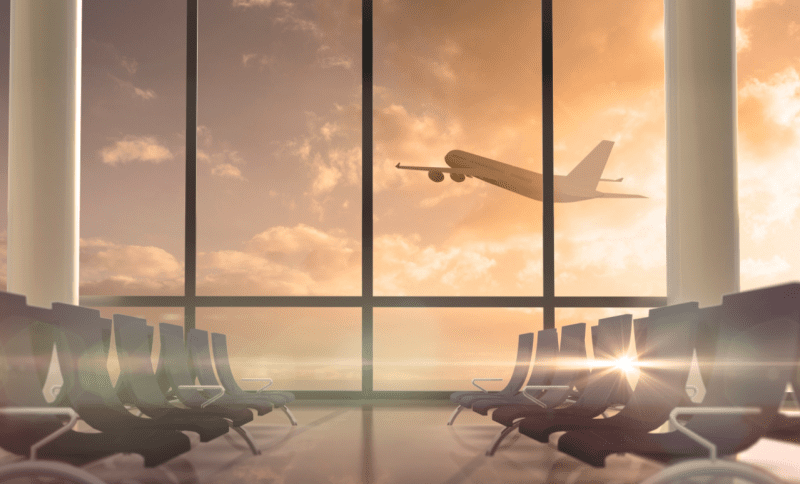Latest News

Photo: Via Satellite/Freepik.com/Wavebreak Media
HAMBURG, GERMANY — Executives from the aviation and satellite industries at the Passenger Experience Conference in Hamburg agreed that airlines need to invest in enhancing the passenger experience, as airlines carry more young travelers than ever before with higher demands for connectivity-based services.
In a panel titled, ‘Meeting the Expectations of the New Generation Digital Customer’, executives from Viasat and Intelsat took part with others to discuss these latest trends. Chris Demange, Senior Director, Media & Partnerships, Viasat told the event that customers no longer expect to have a fragmented experience, and that they now expect to have something more “intuitive”. He said it is incumbent on companies like Viasat to enable aggressive rollout of connectivity strategies, whether ‘free’, app based or something else.
“The airlines that are aggressively pushing apps are seeing a higher take-up. We love the idea that everyone has the opportunity to stream at scale,” said Demange. “We want that trend to continue. It doesn’t mean there is not a value of live events. It doesn’t mean stored content is not relevant. They want a good experience on board. Curation of content can allow for a unique branded experience. What is happening is there is more fragmentation of streaming services. Airlines need providers who can be agnostic.”
Ben Murphy, Vice President of Airline Accounts, Americas, Intelsat, admitted that things are now “moving rapidly in this space” and that passengers now expect reliable, strong connectivity, as in in the past it had been a “friction” point. Like Demange, Murphy spoke of the importance of airlines using dedicated apps more, and how they can tease free services such as connectivity through the app. “An airline has much more control through an app, than through a portal,” he said. The user base is dictating changes here. “Our user base was business travellers for the first 10-15 years of our business. We are seeing a lot more younger and leisure based travellers using these services,” adds Murphy.
One of the other panellists, Andrew Mohr, Vice President, Digital Solutions, Panasonic Avionics, said even though it has been talked about for awhile personalization has become a major focus for the industry in recent times. He said, “In IFE, the seat doesn’t know you at all. To create relevance is to form that relationship with the customer. The airline app can have this new life now.” However, with so much focus on content, and more targeted content, it remains a tough challenge. Mohr admitted licensing content for airlines remains a “complex” issue.
Airline Perspective
In another panel titled ‘Succeeding with Low-Cost Digitalization Model’, speakers from low cost airlines easyJet and Volaris spoke about their connectivity strategies. Both are working with AirFi as they look to bring a more portable, flexible solution to customers. William Kramer, Transformation & Continuous Improvement Lead, Inflight, easyJet said the pandemic had really focused easyJet’s thinking in this space. easyJet has based its offering on the passenger device, where there is a platform on the browser. Working with AirFi meant a fully portable solution which it was able to install super quick. “This was really important. We wanted something to put on overnight. We first trialled it in 2021 on six aircraft. A real time connection will open up a lot of new opportunities for us.”
Daniela Ramos, Head of On-Board Sales and Service, Volaris said the Mexican airline now has 10 percent of its fleet installed with the AirFi connectivity solution. She is optimistic that it can lead to a strong increase in ancillary revenues for the airline. Job Heimerikx, CEO, AirFi said what was particularly interesting about the Volaris rollout was the airline including talking about the on-board experience when customers booked their flights. One of the keys is getting better awareness on behalf of passengers when accessing these services.
Sustainability
In a panel titled ‘Defining New Passenger Experience Benchmarks’, the discussion while talking about connectivity veered much more onto the topic of sustainability. Raymond Kollau, Senior Trend Analyst, TrendWatching says one of the interesting trends to watch, particularly in Europe, is airlines combining with High Speed Rail (HSR) operators to offer fast rail services instead of short internal flights. He cited one example where you could get one ticket from Lufthansa and Deutsche Bahn (German railway operator) to cover one complete journey and avoid unneccesary short flights. He also spoke about how KLM CEO Marjan Rintel spoke of more collaboration between the rail industry and airlines to reduce the numbers of short flights.
However, it is clear sustainability will continue to be a major issue for the industry. Jeff McKee, Director Customer Experience & Design, Collins Aerospace struck a more controversial note, while saying these initiatives are laudable, there is a price to pay for this. “Is the general public and airlines willing to pay for sustainability? Who is going to pay for this?,” he asked.
Rick Salanitri, President, Delta Flight Products called it an “existential issue” but said the production of Sustainable Aviation Fuels (SAFs) is simply not there right now. However, with most airlines ramping up their efforts here, it is clear more will need to be done here as the sustainability issue is becoming more and more important, particularly to young people, who are very switched on on these topics.
Get the latest Via Satellite news!
Subscribe Now